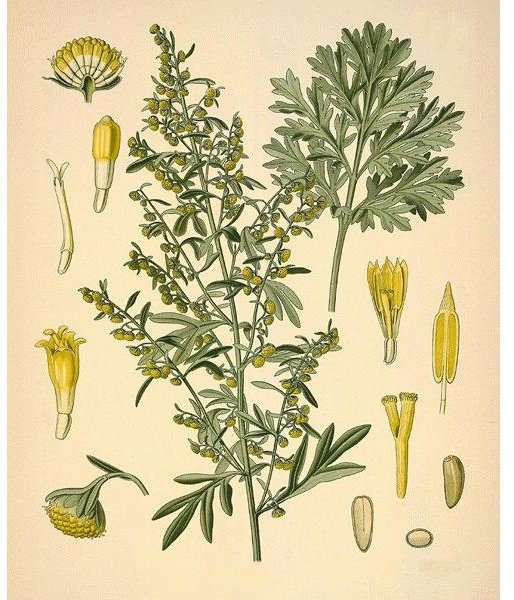Learn the Benefits of Wormwood Tea
Wormwood Tea
Wormwood (artemisia absinthus), belonging to the daisy family Asteraceae, is a perennial shrub-like plant native to Europe, western Asia, and northern Africa. It usually grows in dry or semi-dry habitats and can reach a height of 1-3 feet. Wormwood is one of the most bitter of all plants.
The whole plant (leaf, flowering parts, and stems) are used for medicinal purposes.
Health Benefits of Wormwood Tea
Digestive Tract
Wormwood tea can help improve appetite and better digestion by increasing the secretion of enzymes needed for digestion. It can stimulate movement of the muscles in the bowels to help release gas and ease bloating. Wormwood tea can help heal gastritis and, as the name suggests, it can also be used to destroy and rid the body of worms.
Liver
Wormwood tea is said to help safeguard the liver and help in the healing of hepatitis and jaundice. It is also said to benefit cholecystitis (inflammation of the gall bladder).
Other
Wormwood tea may also help:
- enhance the immune system
- decrease inflammation in the respiratory tract
- promote uterine contractions during childbirth
- rid the body of toxins
- bring on menstruation
- reduce fevers
- heal skin conditions.
Preparing Wormwood Tea
Pour 1 cup of boiling water over 1 teaspoon of dried wormwood, cover, steep for 10-15 minutes, and strain. To sweeten the bitter taste, add a little honey or maple syrup to your tea.
Normally, to get the best benefits of wormwood tea, people drink 3 cups a day on an empty stomach, about 15 minutes before each meal.
You can also soak a washcloth in the tea and use as a compress for problems such as bruises and insect bites.
Although short term use of wormwood tea has no major side effects, long term use should be avoided because it can be toxic. Do not use for more than 3 weeks at a stretch.
Disclaimer
Please read this disclaimer regarding the information contained within this article.
